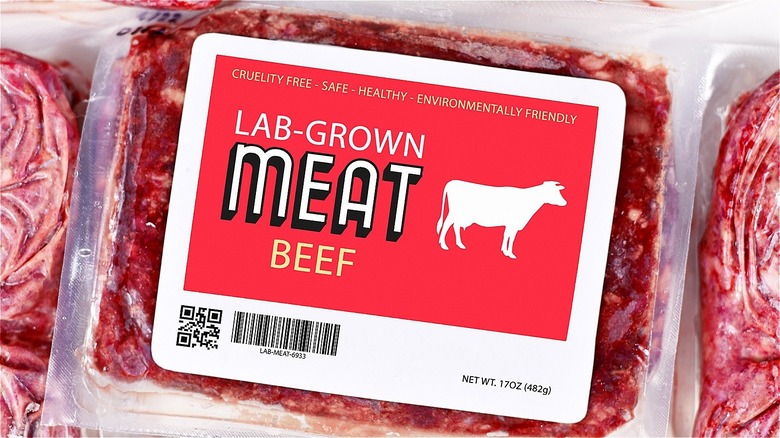Lab-Grown Meat Has The FDA's Approval For The First Time
Although access to it has been limited throughout the years, lab-cultivated meat is not a new concept. In fact, it first appeared in 2013 when scientist Mark Post and his team created the first hamburger made out of 20,000 lab-grown muscle fibers (via The Guardian). This was all done in a lab and without physically harming a cow, instantly making this concept intriguing to many. However, the issue was that this new food production method was not yet approved by the Food and Drug Administration (FDA), and people also feared the substances used during the complicated biochemical process to extract the cells (via the Burdock Group).
But it's been years since Post's creation, and there is still the same interest in lab-grown meat. In Singapore, where cell-grown meat has been approved, people were able to try GOOD Meat chicken. This innovative brand utilizes the animal cells to create traditional dishes such as chicken and rice, katsu chicken curry, and chicken caesar salad, according to VegNews. But now, Americans might be able to get a taste of lab-grown meat, with the FDA's most recent decree.
Upside Foods has the FDA's approval
On November 16, 2022, the FDA approved UPSIDE Foods' request to grow meat from cells. According to the FDA, it stated that workers "have no further questions at this time about the firm's safety conclusion." In the past, people have been concerned about the labeling of cultivated meat, due to the nuances that would cause in the meatpacking and livestock industries, but the FDA clearly states that the company's goals are "to take living cells from chickens and grow the cells in a controlled environment to make the cultured animal cell food."
UPSIDE Foods is the first cultivated meat company in the world and was founded in 2015, according to its website. It has the goal of "cultivating new foods to serve audiences around the world."
However, according to Wired, the company's production facilities still need inspection by the United States Department of Agriculture (USDA) before it sells its food products, which then have to be checked for quality.

